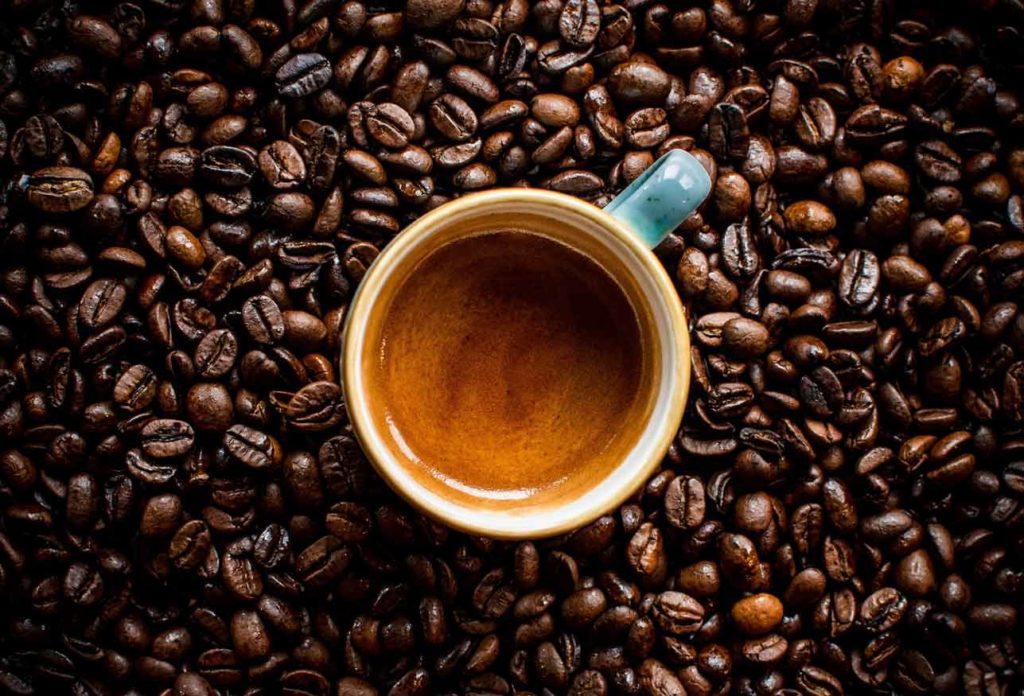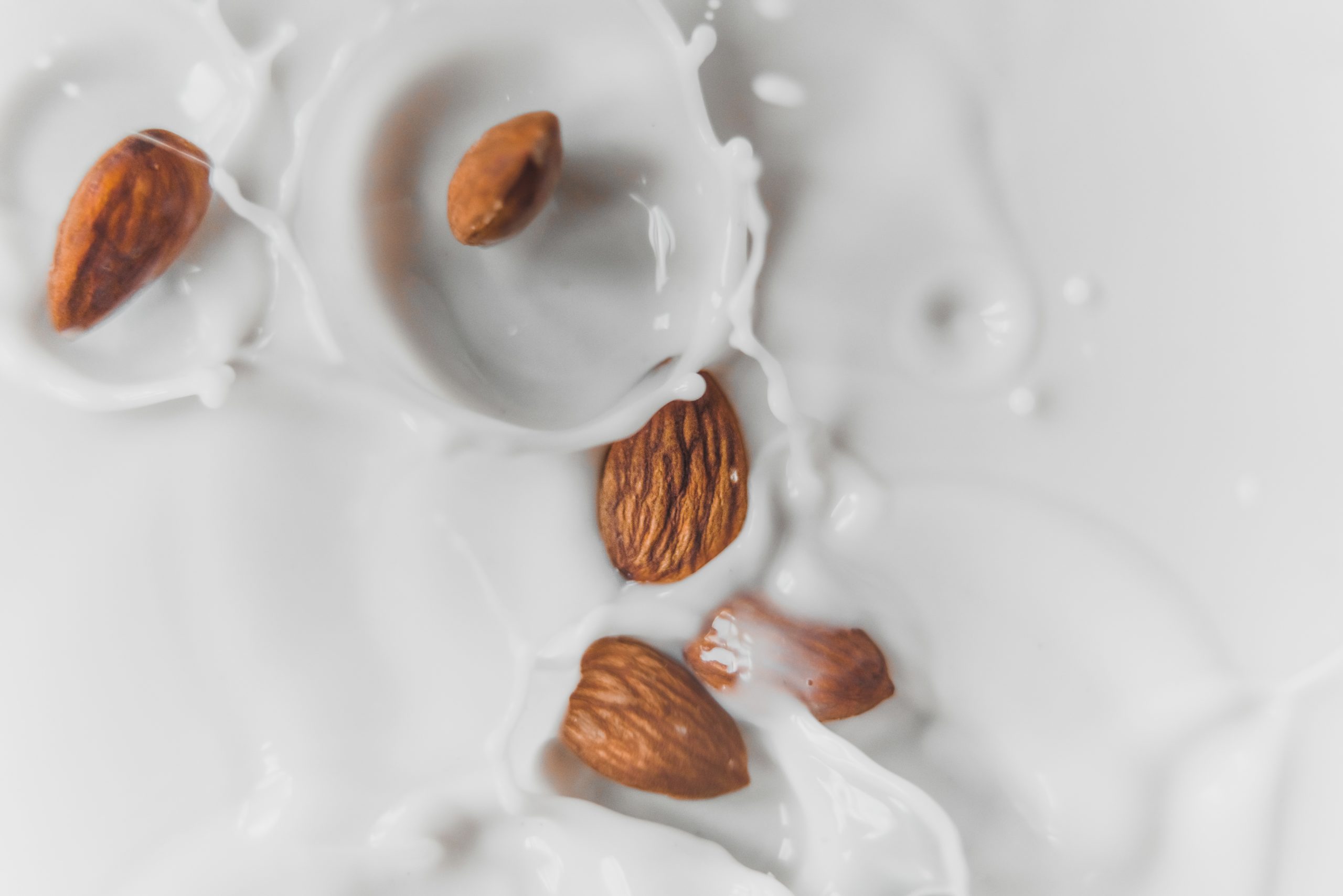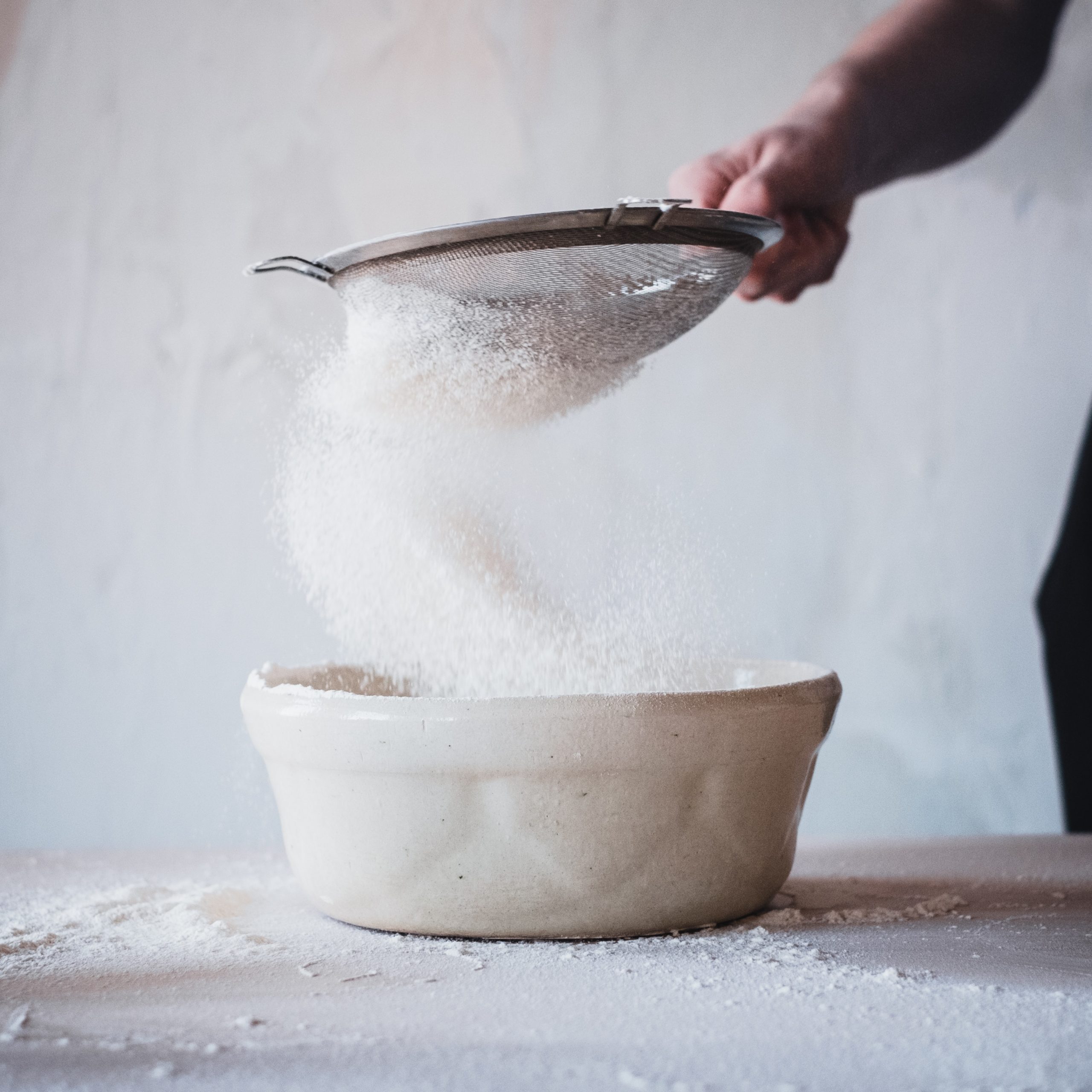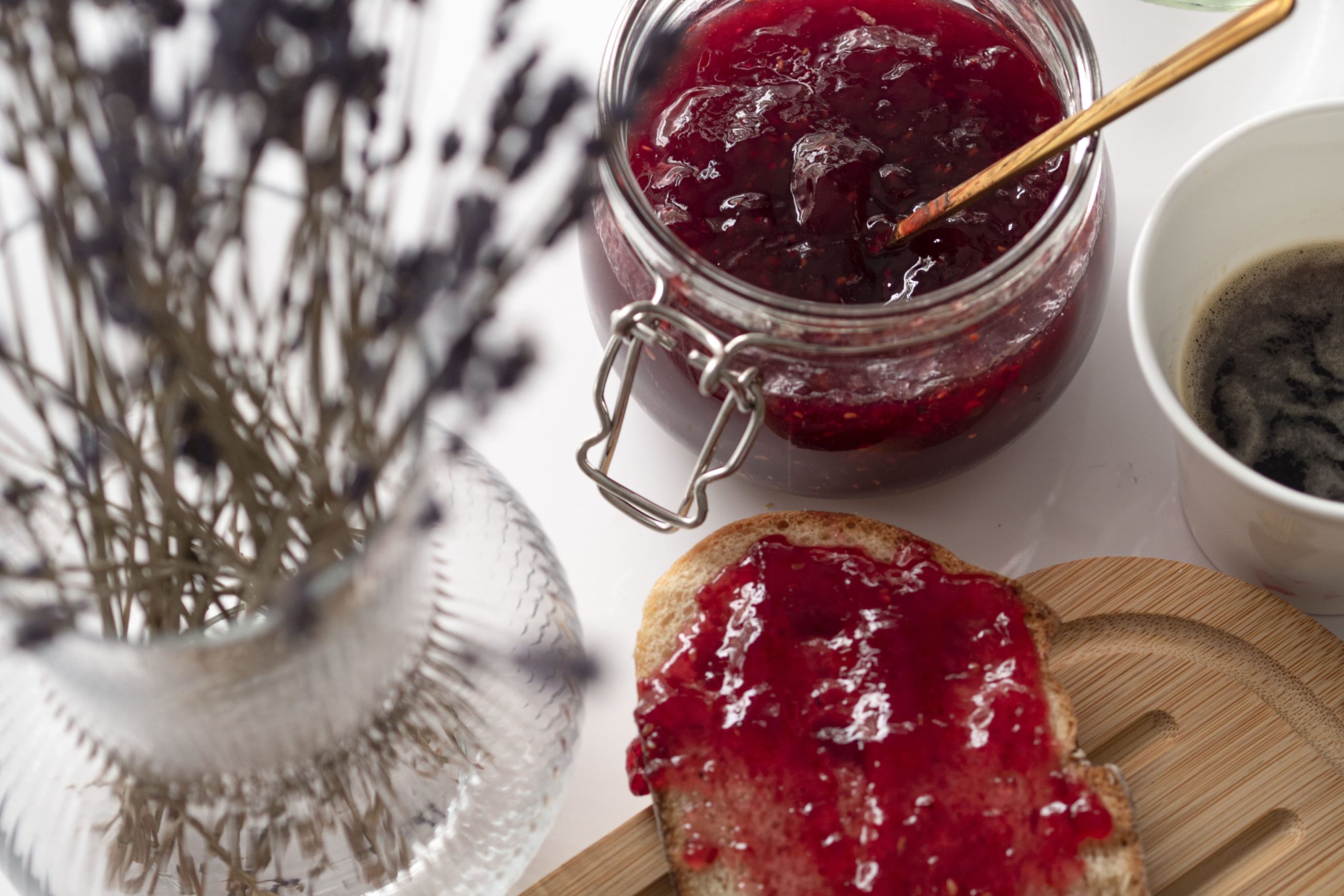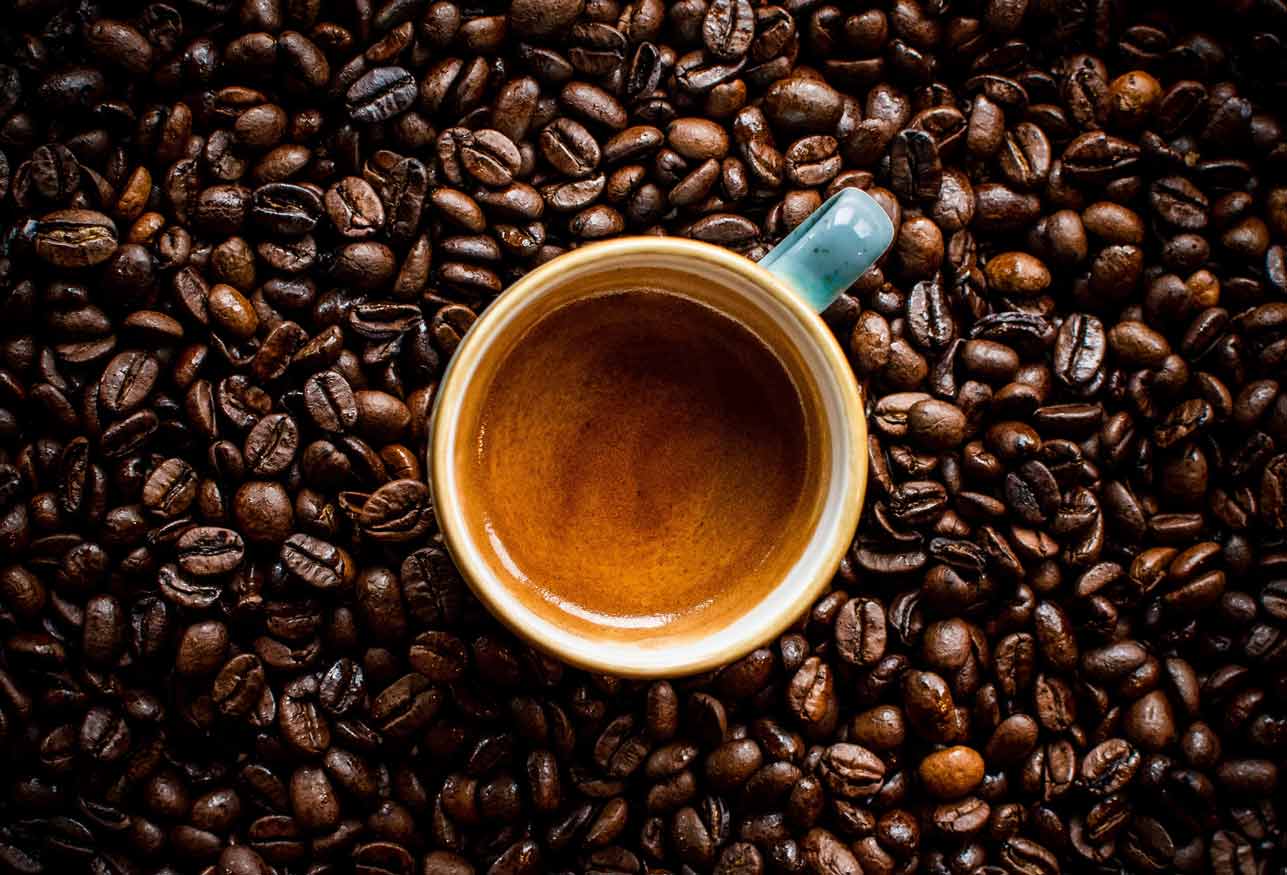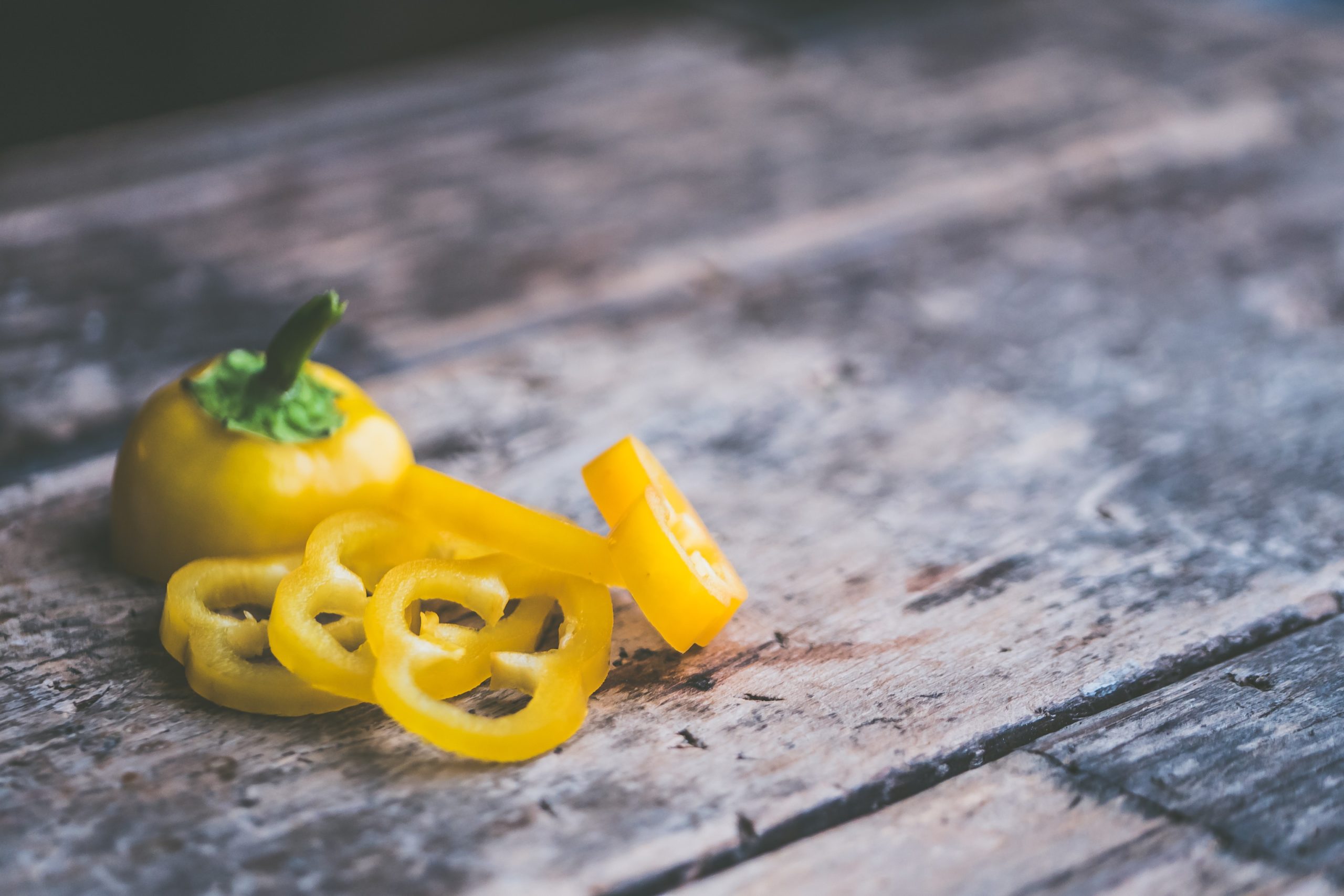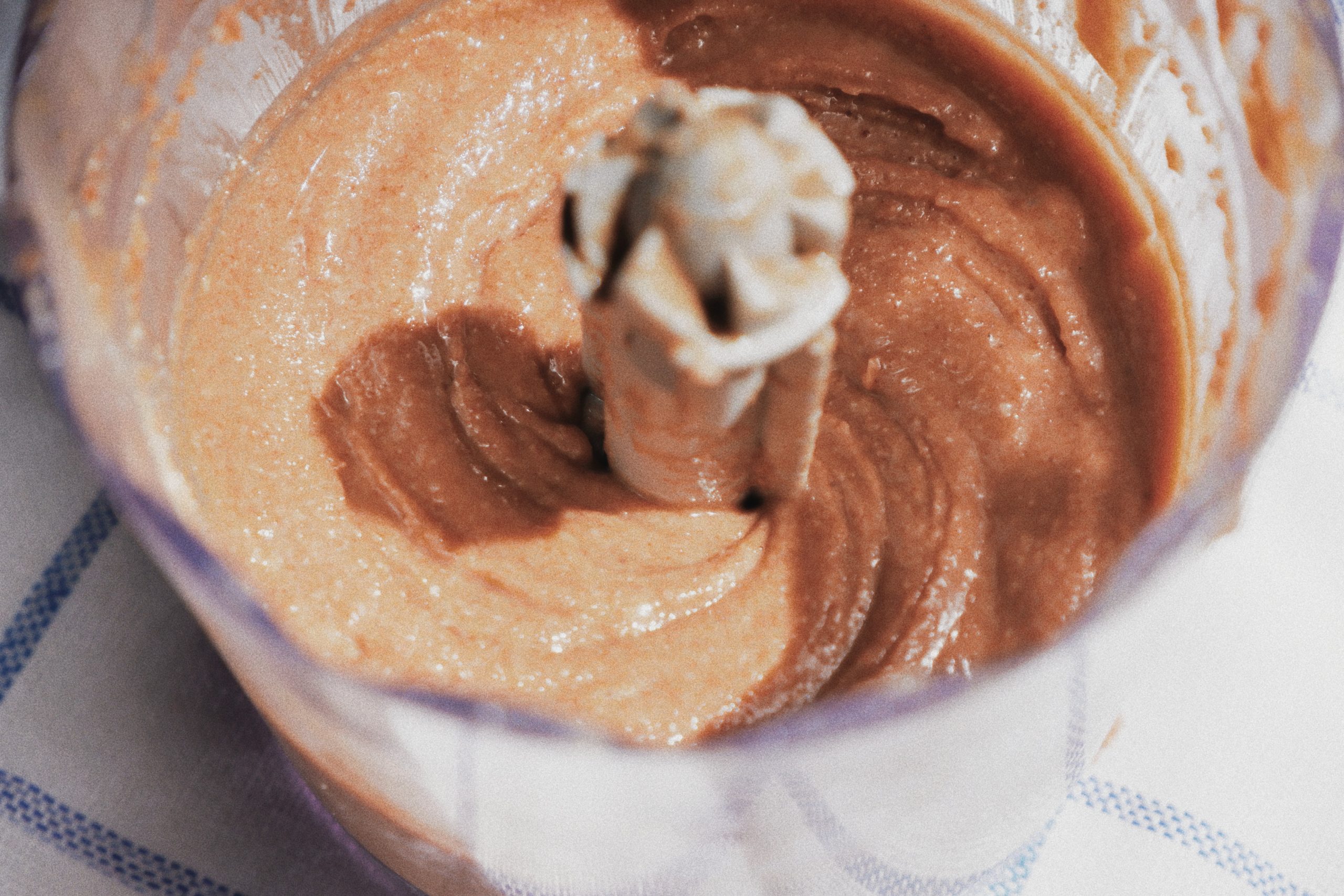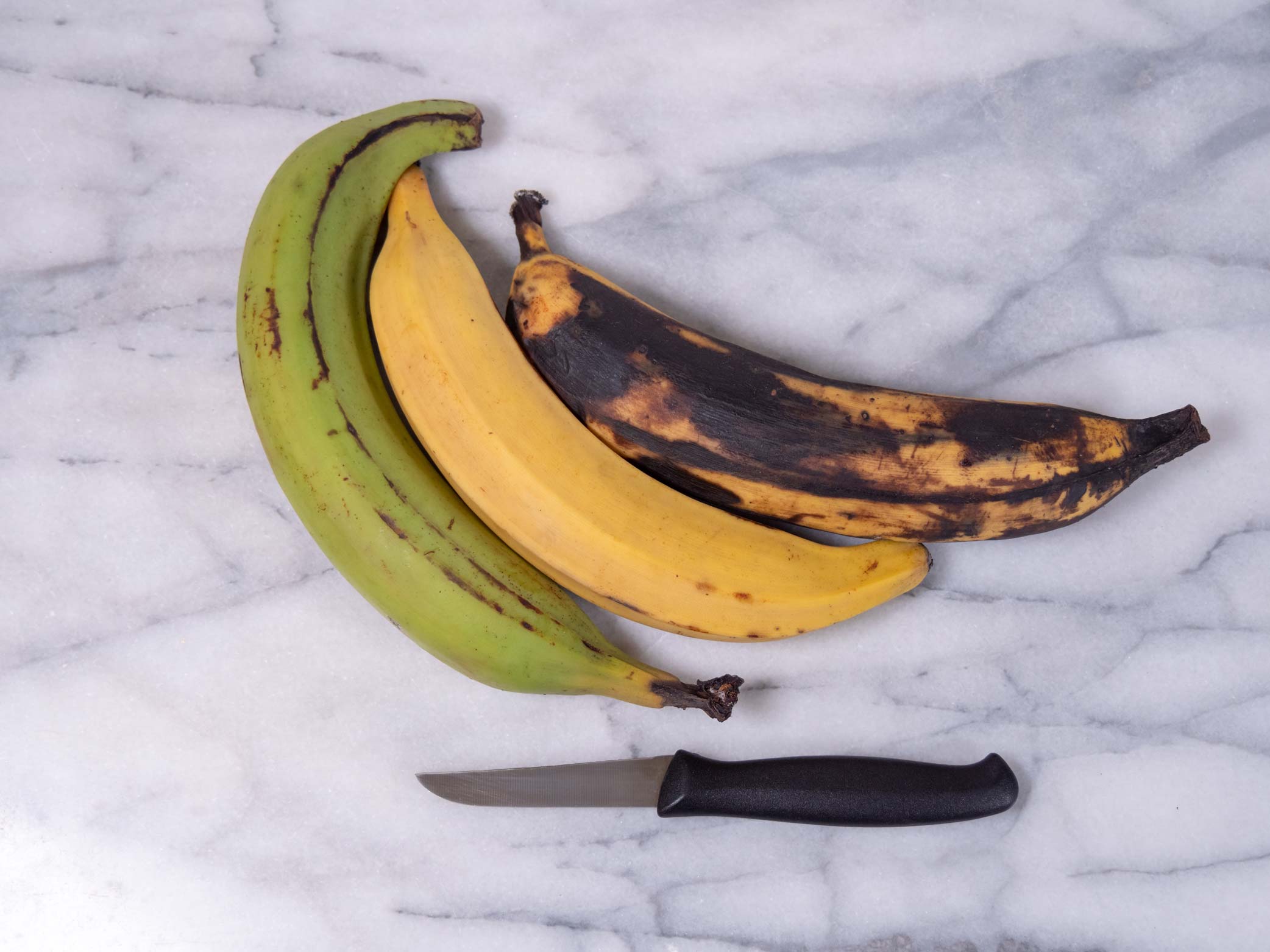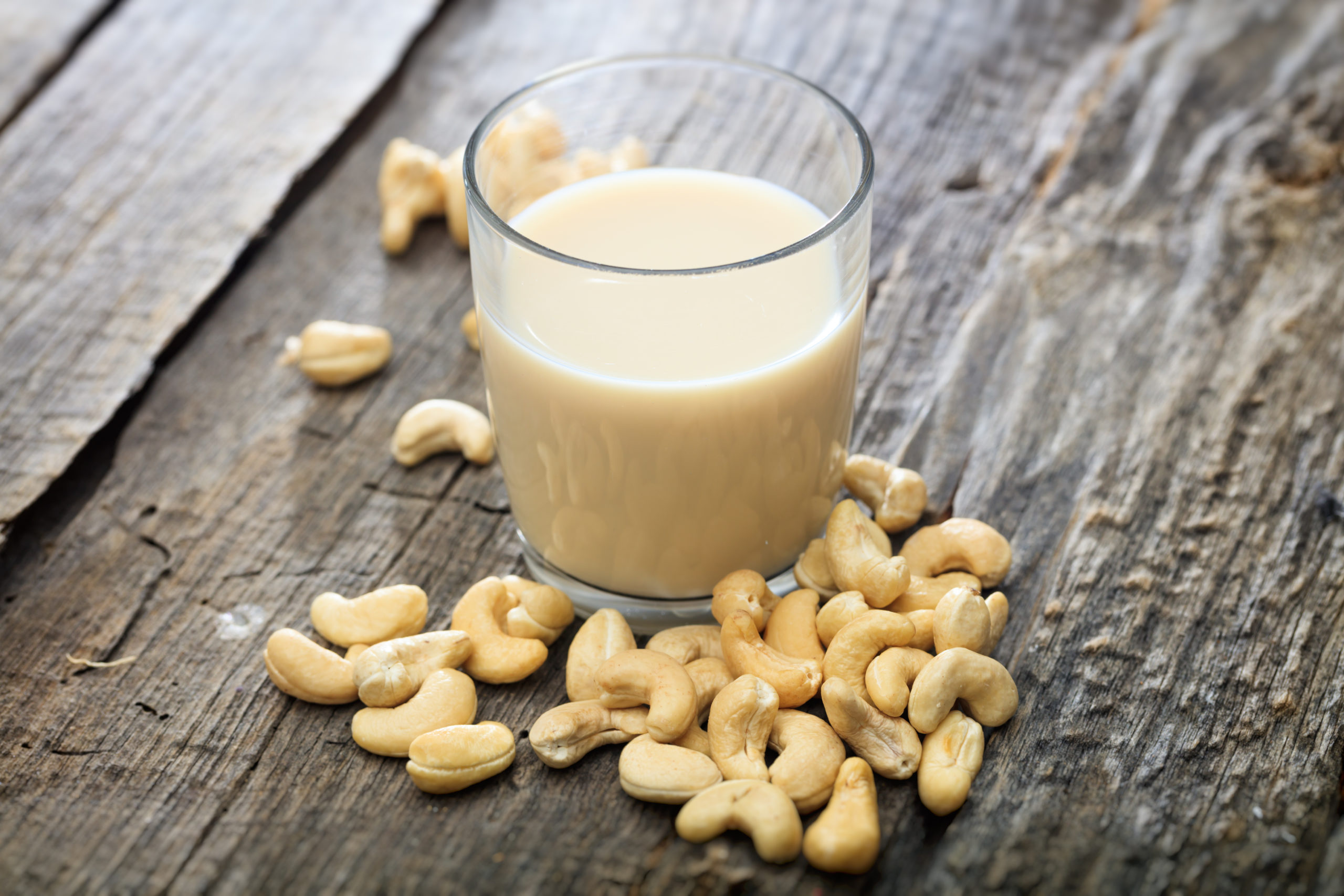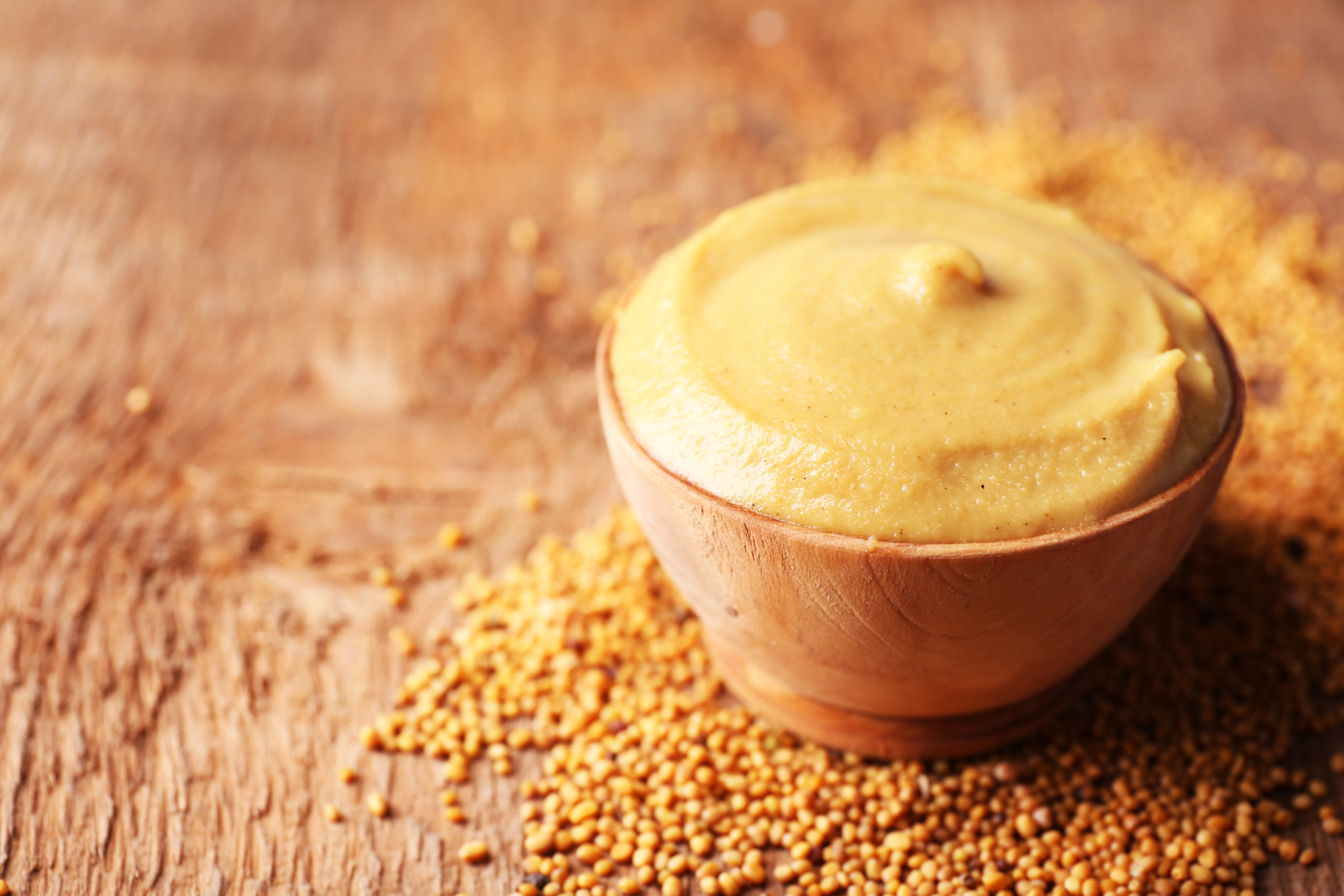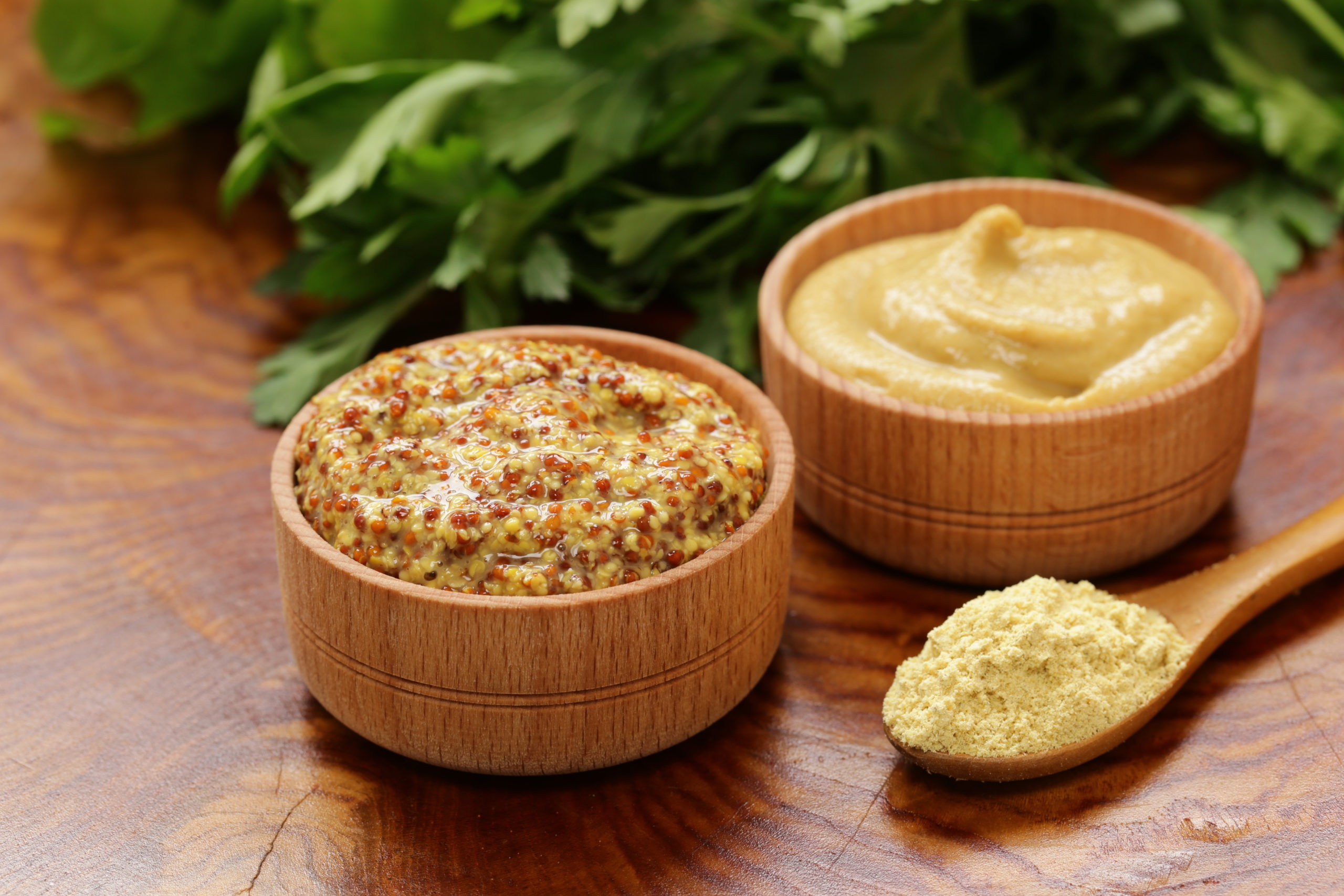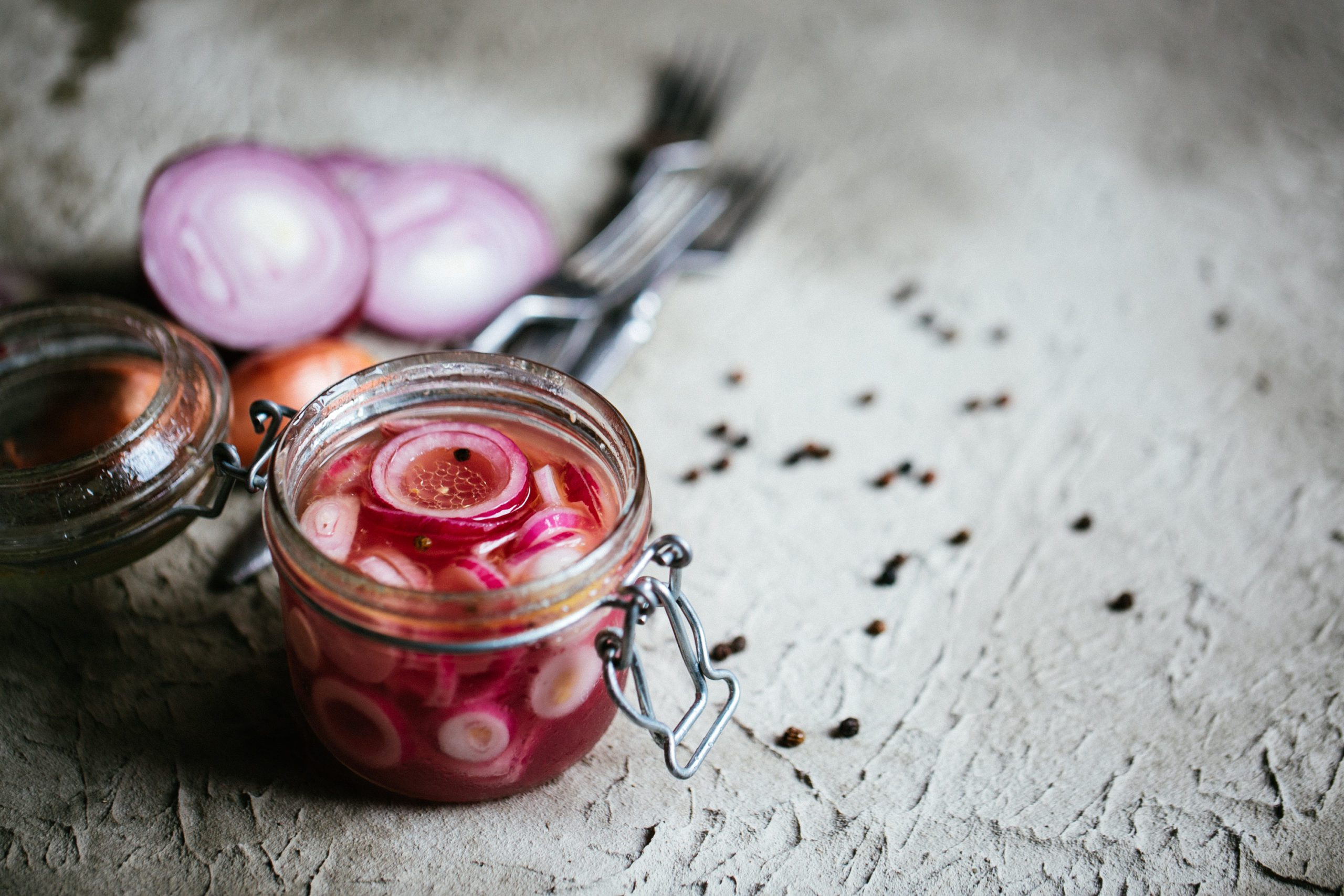In short, the effects of a shot of espresso can be felt as quickly as 15 minutes, and will peak after one hour. But how long the effects last depends on a lot of things.
Caffeine has something called a half life. This is a number that tells us how long it takes for half of the stimulant to leave your body. In most people, caffeine’s half life is roughly 5 hours.
This means that after you drink a shot of espresso, half of the caffeine is still in your system, but it doesn’t end there.
How caffeine makes you feel depends on these factors; genetics, personal tolerance, daily behaviour, the type of coffee, and the actual amount of caffeine you drank.
In this article, we’ll cover exactly how these can affect how long a shot of espresso will last, plus we’ll include some tips on how to better manage the effects of caffeine (without quitting it entirely).
How your body handles caffeine is different than others
Drinking a shot of espresso in the morning can be just the pick me up you need. For others, it can send them spiralling over the edge and into an anxiety driven panic.
This is because everyone’s bodies handle caffeine differently.
Without getting too scientific, caffeine works by blocking something in your body called adenosine. Adenosine is a substance that builds up in your bloodstream the longer you stay awake.
In your brain, you have adenosine receptors. These receptors read your adenosine levels and signal to the brain when it’s time to go to sleep.
After reading these signals, your brain begins making you tired in an effort to make you sleep. Once you sleep, the adenosine levels go back to normal.
Caffeine works by blocking your brain’s adenosine receptors from being able to read the levels in your bloodstream.
In essence, caffeine doesn’t give you energy, it tricks your brain into thinking you aren’t tired.
Your genetics influence the way caffeine binds to your adenosine receptors.
In some people, the caffeine does nothing at all to their receptors. These are the people who can drink coffee all day and say it doesn’t affect them.
For others, caffeine binds very well to their receptors. These are the people who feel the full effects of caffeine. It makes them wide awake, and alert. Sometimes too alert.
You liver also plays a huge role in how long caffeine will affect you
The genetics of your brain aren’t the only thing at play here.
Above we discussed the half life of caffeine being 5 hours. Meaning that it takes 5 hours for your body to eliminate half the caffeine you drank.
That number is heavily influenced by the genetics of your liver.
It’s your liver’s job to metabolize the caffeine and remove it from your system.
Some people produce a lot of the specific liver enzyme required to filter out the caffeine. Other people produce very little of it.
If you’re someone who doesn’t produce a ton of this enzyme, you’re going to feel the effects of caffeine for many more hours than someone who does.
The half life of caffeine for you could be up to 12 hours.
How long it takes your body to metabolize caffeine is the biggest factor for how long a shot of espresso will last.
What you eat for breakfast, and if you smoke also make an impact

So far we’ve learned that your liver has the biggest influence on how long it takes caffeine to leave your system, but what about other things that affect your liver?
What you eat for breakfast, including what types of medications or supplements you’re taking also affect the way your liver will metabolize the caffeine.
We know that your liver produces an enzyme to get rid of the caffeine, but sometimes liver enzymes have multiple things to filter out.
If you eat something that needs to be filtered out by that same enzyme, caffeine will have to wait it’s turn.
This can extend the effects of caffeine for longer.
In a nutshell, the things that smoking a cigarette puts into your bloodstream increases the amount of caffeine eliminating liver enzymes your body is producing.
More enzymes means less time for the caffeine in your bloodstream.
How much caffeine is in a shot of espresso and was it really just one?
Unless you’re ordering a straight single espresso shot and gulping it down, the likelihood of you actually drinking a single shot of espresso is low.
Places like Starbucks all default to a double shot of espresso in their espresso machine.
A standard single shot of espresso has between 47-64 mg of caffeine.
If you had a latte or other espresso drinks from Starbucks, you would have consumed double shots of espresso, making it upwards of 120mg of caffeine.
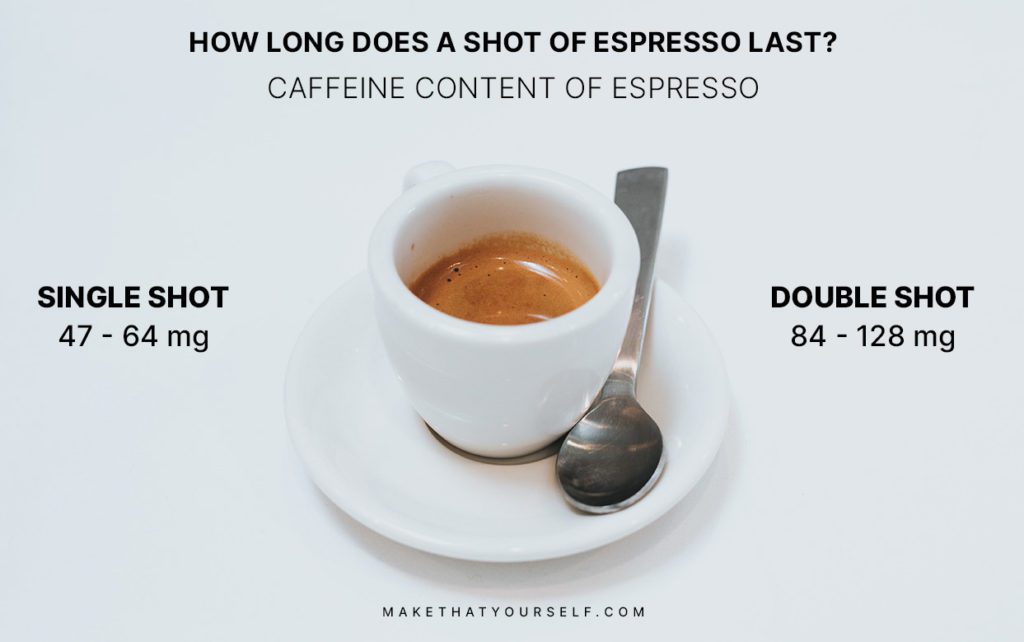
The more caffeine you drink, the long it takes your liver to filter it out, making the effects of it last longer.
In comparison, a cup of coffee, either from a drip machine or french press brewing method, has an average of 150 milligrams of caffeine.
The problem with the drip coffee brewing process is the size of the cup itself. Most people have no idea the caffeine intake of their cup of coffee.
What type of espresso you drank also impact caffeine levels
Since espresso beans aren’t real, what we’re really talking about here is types of coffee, specifically the roast type.
Overall, there are three roast types. Light, medium, and darker roasts.
Each one corresponds to the amount of time the coffee beans were roasted for.
Lighter roasts being less time, and dark being roasted for the longest time.
Flavor wise, a dark roast has a much bolder, deeper, and richer coffee. It tastes like the stronger coffee, but it isn’t.
The lighter the roast, the higher the caffeine content in your coffee

Well… sort of. Since this article is about how long caffeine affects you, we’ll keep it simple by saying that lighter roast coffee has more caffeine.
The truth is in how it’s measured. Lightly roasted beans are smaller, therefore 1 tablespoon of light beans is more beans than a tablespoon of dark roast beans.
It has little to do with grind size, hot water, room temperature, or cold brew methods.
But let’s say you’re ordering an espresso from Starbucks, they list their light roast and dark roast at different caffeine amounts.
A single shot of regular roast espresso from Starbucks clocks in at 75mg.
They list a single shot of their blonde espresso at 85mg.
And when you default that to an automatic double espresso in your latte or cappuccino, it’s a difference of 20mg of coffee between the two roasts.
Depending on your caffeine tolerance and if you’re a regular coffee drinker, that 20mg can make a difference in how long you feel the effects.
It’s best to avoid coffee 6 – 10 hours before bed
In Italy, it’s looked down upon to order an espresso or cappuccino after 11am, and maybe for good reason.
While you might no longer feel the effects of the espresso shot you had at 3pm, your sleep might still suffer.
If the half life of the coffee you drank at 3pm is 5 hours, that means half that shot of espresso will still be in your system at 3pm.
It also means the last of it won’t leave your body until 1 in the morning. And while you may fall asleep easily, the quality of your deep REM sleep may be impacted by the caffeine.
And don’t forget it’s not just coffee that contains caffeine.
Green tea, dark chocolate, flavored coffee drink, soda, and coffee flavored products all include varying levels of caffeine. So be weary that your midnight snack of chocolate and green tea could be impacting your sleep more than you realize.
Try switching to half caffeinated espresso
Did you know you can order drinks “half-caf” from Starbucks?
This basically means if you order a latte, one shot will be fully caffeinated, and the other will be decaf.
This gives you the best flavors, and best taste of a double shot with much less caffeine.
You can also make you own half-caf espresso at home.
Get an airtight container with a lid and pour two bags of ground espresso coffee into it, one being regular and the other decaf. Proper storage is important.
Once you give that a good mix, each shot of espresso you make from the container should be an even mix of half caffeinated and half decaf coffee.
The only correct answer is that effects of espresso are different for everyone
While we do know the baseline numbers for how long a shot of espresso will last in the body, the way it makes people feel and just how long people feel those effects varies.
The best way to avoid any negative experiences with espresso is to know your limits.
Pick a time of day when you’ll no longer consume caffeine, ideally 6 – 10 hours before bedtime.
Try switching to half-caffeinated espresso from Starbucks, or make a mix of half-caf coffee at home.
Beyond just espresso, drink your drip coffee out of the same sized mug each day, allowing you to keep track accurately of the amount of coffee you’ve already consumed.
Also be vigilant of the other things you’re eating and drinking that might also consume caffeine and consider getting low caffeine or caffeine free versions of them.
And if you’re in need of an afternoon pick me up, consider an alternative to coffee that will actually give you energy rather than tricking your brain into thinking you aren’t tired.
A quick walk outside, or a break from your daily tasks can help give you a boost of energy.
Sometimes all you need is a short rest to feel energized, which can do a lot more for your productivity than a stimulant like coffee.
Got more questions? Check out: Can you freeze plantains? Here’s How To Easily

